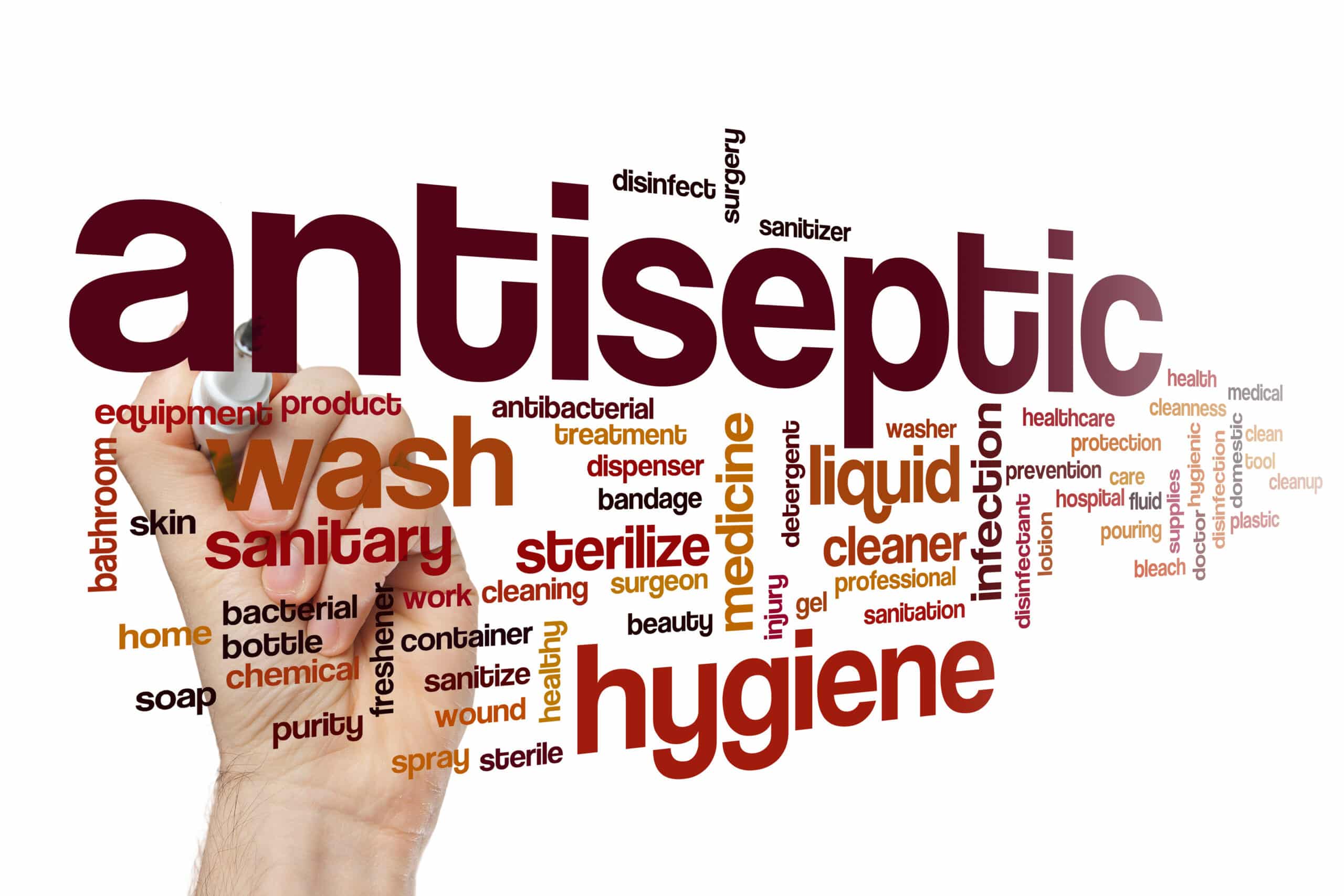The goal of using antiseptics and disinfectants is to prevent infection, these products are antimicrobial substances that kill off microbes such as fungi, bacteria, and some parasites., However, it is important to know how to use them appropriately as these products have distinct differences. Antibiotics are drugs that are ingested/injectable used to halt the spread of infection; antiseptics are used to slow the growth of bacteria on skin, while disinfectants are applied to non-living surfaces.
Antiseptics are used in hospitals but are available over the counter for home use as well, they are good for cleaning small cuts, minor wounds, swabbing skin before removing a splinter, and prepping skin for injections. These products should be used on the skin sparingly as they can cause skin dryness and irritation, kill off harmless microbes living on the skin and mucous membranes, as well as possibly killing skin cells.
Ethyl rubbing alcohol is a common antiseptic that works fast against viruses, fungi and bacteria, alcoholic drinks that are 60-90% ethanol can also be used in a bind as an antiseptic.
Chlorhexidine gluconate is an antiseptic common to hand hygiene and mouthwash products that is effective against many bacteria but not very effective against mycobacteria and viruses. Some people may be allergic to CHG, but it is not as irritating as alcohol.
Betadine Povidone iodine is a fairly common antiseptic, a 10% tincture is effective against bacteria, spores, fungi, viruses, and mycobacteria that can also be irritating to the skin. Often patients are asked if they are allergic to shellfish before iodine is used.
Bleach is more of a disinfectant than an antiseptic but is effective and useful for long term prepping needs, and it effectively kills spores and prions.
Hydrogen peroxide is another common antiseptic but it has a limited shelf life and may not be suitable for long term prepping needs.
Apple cider vinegar is a natural antiseptic that can be used to clean wounds and disinfect medical tools.
Baking soda has mild antiseptic properties that can help to kill some fungi, molds, and parasites.
Lemons are an effective disinfectant, but is best not to be used on open wounds; essential oil can help to reduce scarring, and a cleaning solution made with lemon juice can be a great general household disinfectant.
Witch hazel helps as a topical remedy for poison ivy rash, poison oak rash, eczema, acne and mosquito bites due to its antibacterial properties that help to reduce swelling and repair broken skin.
Various essential oils such as cinnamon, citronella, oregano, orange, spearmint, tea tree, and camphor oils have powerful antibacterial and germicidal properties, some are so potent they must be diluted with a carrier oil before using to avoid skin irritation, always read the label.




